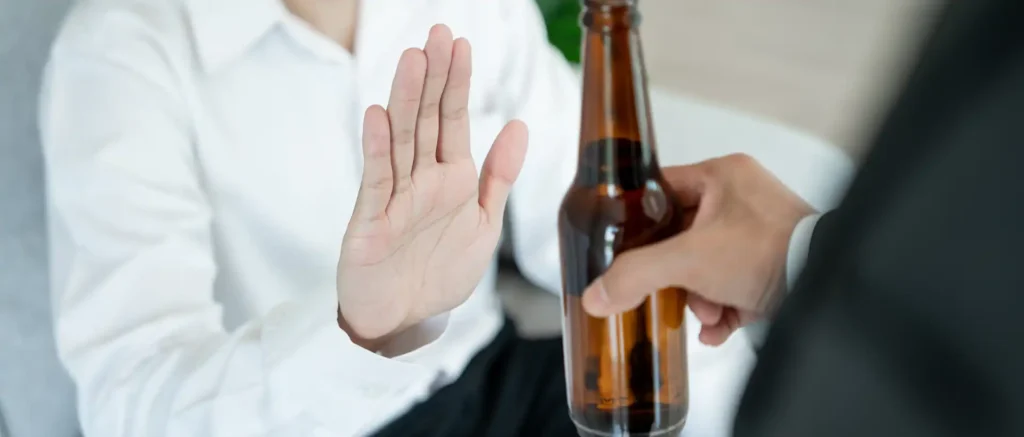How To Help An Alcoholic Friend

Everyone loves socialising and enjoying the company of friends. A good get-together typically involves meeting for a drink, sharing events, and catching up on the latest gossip. Surely, there is no harm in drinking alcohol together to relax and enjoy these moments, but sometimes there may be a bit more concern if a friend oversteps their alcohol consumption.
Most young people get their first taste of drunkenness and hangover during and after social gatherings. Most of us are guilty of drinking too much, feeling ill, and being completely non-functional the next day. This experience makes most of us swear never to drink too much again, but it does, time and time again.
While most people drink, they also grow out of drinking too much, leaving behind the false fun of binge drinking or the need to keep up with peers who incessantly try to force someone to drink more than they should. But what happens to those who get caught up in constant alcohol consumption, who find they may have developed a dependency on alcohol misuse?
Alcohol addiction is a condition that silently takes over a person’s control of alcohol use. In the early stages, consuming alcohol may be seen as a normal activity that a friend tends to do. Still, over time, signs of alcohol use disorder start to become more obvious, which may cause concern for someone who may have a drinking problem.
The harms of alcoholism can make people want to know how to help an alcoholic friend.
How Do I Know My Friend Has An Alcohol Problem?
If you are asking yourself this question, it is because you have noticed that your friend appears to be drinking too much or maybe showing out-of-character behaviour during drinking.
You have already asked them if they have a problem, and you will have been given a ‘No’ as a definite answer. This response is normal. Anyone struggling with alcoholism typically refuses to accept they have a problem.
Their tolerance to drinking large amounts often proves to them that they are capable of drinking, and they believe they are fully in control of their actions. They will not want to seek help or listen to any concerns about their drinking and will often make excuses or lie about their consumption.
An alcoholic friend will avoid places they know will not serve alcohol or attend gatherings where they have to spend a long time without alcohol consumption being available.
Alcohol becomes so important that it overpowers all other thoughts or ideas, and searching for the substance becomes the highest priority every day, neglecting activities or responsibilities to ensure they have their regular consumption.
The most obvious sign that a friend is engaging in alcohol abuse is when they start drinking more. Some of the other signs include:
Many people want to know how to help a friend with an alcohol problem. However, it’s important to be able to spot this problem. The most obvious sign that a friend is engaging in alcohol abuse is when they start drinking more. Some of the other signs include:
Changes in Personality
Alcohol is a depressant, but it is also a social lubricant that can lower inhibitions. People who drink alcohol may become dour or they may become more reckless.
Changes in Weight
Alcoholic drinks are a food item, and they contain calories. Even ‘light’ beer has between 90 and 100 calories per serving, depending on the brand. As such, people who drink excessive amounts of alcohol may gain quite a bit of weight.
Increased Secrecy
One of the biggest reasons why it may be hard to identify a person’s addiction is that many people who fall into addiction become more secretive as they try to hide their struggles from the people closest to them. As such, if your friend becomes more withdrawn socially, then they may have something to hide.
Defensiveness
Another sign that someone has become an alcoholic is when they become defensive about their drinking when someone points out how much they’ve had. They may say they’ll know when they’ve had enough or are just trying to relax.

How Do I Talk To Someone About Them Becoming An Alcoholic?
If you have noticed that your friend is drinking too much alcohol and it appears he or she is unable to function normally without it, you may be wondering what you can do to help.
You have probably already made some comments or shown your concern, but the drinking problem continues. You have not failed in your attempts to convince a friend to stop drinking; the reason they don’t stop drinking is that they have developed an illness.
Gone are the days of ostracising people with drug and alcohol disorders. Professional teams all over the world are treating these conditions in the same way as cancer or other life-threatening diseases, understanding alcoholism for what it is and discarding the stigmas that are more damaging than the illness itself.
However, for someone with alcohol problems, it is a matter of serious intervention when simple communication has no positive effect. Efforts made to talk to a friend may fall on deaf ears, but you should never give up on helping your friend or someone you love.
Having an Honest Conversation with a Friend About Their Drinking
One of the most important parts about getting someone into addiction treatment is how the people around them react to their struggles with addiction. If you talk to your friend about their alcohol consumption, it’s best to withhold judgement.
As mentioned before, they may become defensive. So knowing how to withhold judgement is a big part of knowing how to help an alcoholic friend.
Encourage them to seek help, but do not try to force them into a treatment programme. Suggest a meeting, and if the meeting goes well, maybe help them find other treatment options.
What To Do If A Friend Is An Alcoholic
There are ways to help your loved one or a friend who may be struggling with alcohol misuse, but supporting someone with this condition is not as straightforward as one may assume.
Primarily, it would help if you did not encourage drinking. This means avoiding any situation where alcohol is available.
Inviting a friend for a drink to talk about their problem or having the odd drink with them will have no effect whatsoever and will be perceived as encouraging their drinking with your approval.
Inviting a friend for a drink to talk about their problem or having the odd drink with them will have no effect whatsoever and will be perceived as encouraging their drinking with your approval.
Sad stories may appear. Expect long tales of woe and doom and how they have become victims of their family members, loved ones, and so on. These tales are beckoning calls for funding and supporting their alcohol consumption.
Inappropriate behaviour through the use of alcohol often leads to problems with law enforcement. Standing by a friend or family member through illegal matters can be overwhelming, and one needs strong ties to support and resolve them satisfactorily.
Many friends may have long gone by now, realising their friend has become a burden or ostracised from the once-enjoyed group of mates. Sadly, consuming too much alcohol makes a person more isolated and less interested in activities they once enjoyed.
Ways To Help A Friend With An Alcohol Problem
The first thing that comes to mind is a support group, such as Al-Anon or Alcoholics Anonymous, to help make informed decisions on how to help an alcoholic friend.
These help and support networks are invaluable for seeking advice for problems with alcohol users and can give initial guidance to help you seek various treatment options.
However, at PROMIS, we believe that the first step to recovery is to ensure treatment for alcohol addiction is available when required. This may seem precipitous, but only when a person suffering from alcoholism agrees to treatment, there is very little time to consider admission, and we’ll support your loved one through alcohol detox.
Educating oneself on people with alcohol use, the false stigmas, and how facilities like ours perceive this illness can help enormously with our expectations for the future.
Get Help from PROMIS For Alcoholism
If you want to know how to help an alcoholic friend, don’t think you are the only person in the world going through such an ordeal.
You are not alone – far from it. You can talk to us or other entities if you wish, but we want you to know that our team will discuss your concerns, give you information and advice, or listen to your needs. By calling us, you are under no obligation whatsoever. We are nonjudgemental and will treat your call with our strictest confidence.
We understand what substance misuse is all about, and we know how difficult it is for friends and family to undergo such overwhelming conditions. Let us help. We are only a phone call away and will endeavour to help resolve problems with alcohol or substance abuse with our world-class treatment programmes.
Frequently Asked Questions
How can you help an alcoholic?
It would help to spend time together and listen to what they say. It may also help to explain how their alcohol use affects you.
Which is the best strategy for helping a friend who has an alcohol problem?
It would help to suggest activities that do not involve consuming alcohol. If they are open to talking, being nonjudgemental and compassionate about your concern for them can open the topic of them possibly getting help.
How do I help an alcoholic friend who is in denial?
Denial is common. But it would help to learn about alcoholism and how to talk to them about their behaviour.
How to persuade an alcoholic to get help?
Research treatment options. Gather information about any professional help that they can turn to.
How to take care of a drunk person?
Stay with them. A state of inebriation can increase the risk that a person will act in ways that injure themselves.
